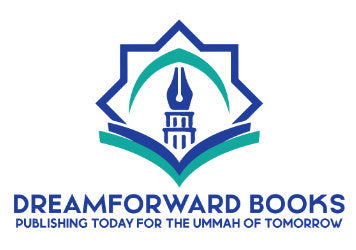Part I - 3 Keys to Improving Students’ Literacy Outcomes
Share
![]()
By DFB Staff Writer
As-salamu alaikum,
Struggling readers. We focus on those students a lot because they are the vulnerable readers who run the very real and very high risk of becoming life-long struggling readers. So before we talk about three keys that help improve students’ literacy outcomes, we’ll define what we mean when we say ‘struggling reader’. The point to remember is that a struggling reader isn’t a child who reads just fine but chooses not to read – these are reluctant readers; readers who don’t willingly read because they haven’t experienced the joy of finding a book that truly interests them. A struggling reader is a child who lacks critical literacy skills (e.g., decoding skills, phonemic awareness, strong fluency skills, etc.). If you work with a struggling reader, this three-part series will show you three things you can do to help improve that child’s literacy outcomes biithnillaah.
Key # 1: Adhere closely to the Quran and Sunnah.
Success is from Allaah Alone and when we leave the Quran and Sunnah or become lazy in learning, understanding and practicing our deen correctly – according to how the salaf understood and practiced it – our worldly affairs suffer. Shaykh Muhammad Abdul Wahab Marzooq al-Banna (رَحِمَهُ ٱللَّٰهُ) said of the Sahaba, “Once they fulfilled Allaah's commandments of enjoining the good and forbidding the evil and believed in Allaah correctly then they became the best of nations. Compare this to many of the Muslims nowadays, do they enjoin the good and forbid the evil in themselves and those under their responsibility? {emphasis ours} Do they have the correct belief? So how will they once more be considered the best of nations?” If our children are suffering academically (or in other ways) it is recommended we take inventory of ourselves to ensure we have not done something to cause this. Allaah says,
Verily! Allaah will not change the good condition of a people as long as they do not change their state of goodness themselves (by committing sins and by being ungrateful and disobedient to Allaah). {Ar-Ra’d: 11}
Shaykh al-Banna (رَحِمَهُ ٱللَّٰهُ) also said,
Those of you who have managed to come to the Mosque are, Allaah willing, the best amongst this community for you have attended the prayers, but where are your children? Where are your children from the ages of seven, eight to fifteen years?
Love for this world, and if it was only for the lawful aspects of this life. Rather, we see Muslims partaking in the lawful and the unlawful matters. What benefit is there in watching the serials on television while the hellfire surrounds us?"
In his tafsir of the Noble Quran, Imam as-Sa'di (رَحِمَهُ ٱللَّٰهُ) said, "All the knowledge and achievements attained by this Ummah came at the hands of the Prophet ﷺ and because of him. This blessing is the foundation of all other blessings, and it is the greatest blessing that Allaah bestowed upon his slaves. What is required of them is to give thanks to Allaah for it and to adhere to the Prophet's ﷺ teachings" (Tafsir as-Sa'di, 2018, vol. 1, p. 178).
And Imam Malik (رَحِمَهُ ٱللَّٰهُ) said,
"Nothing will rectify the last part of this Ummah except that which rectified its first part (i.e., the Book of Allaah and the Sunnah of the Messenger of Allaah ﷺ)."
[Reported by Ibn ‘Abdul Hādi, in Tanqih at-Tahqiq 2/423]
Subhanallaah. Before Islaam, the situation of the Arabs is known (e.g., illiteracy, constant warfare, oppression, etc.), and it is known how, after Islaam, they were catapulted to positions of honour that they occupy to this day and will continue to occupy until Yawm ul Qiyaamah (the Day of Judgement). So returning to the Quran and Sunnah, learning, understanding and practicing our deen correctly is the first key to improving our children’s literacy outcomes.
Inshaa’Allaah part 2 will discuss the second key. We ask Allaah to forgive us our shortcomings and sins and to guide us all to that which pleases Him.
